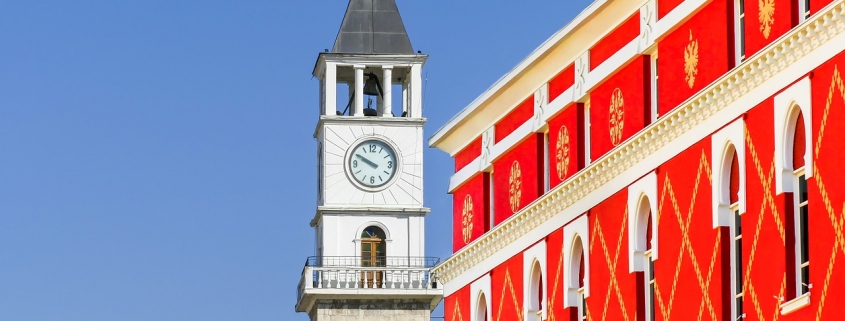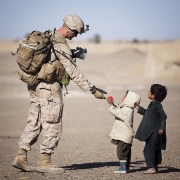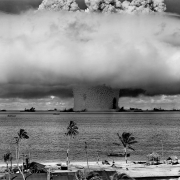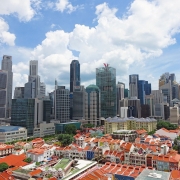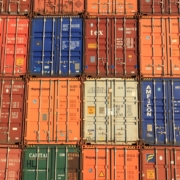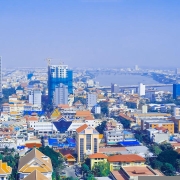Why did Albania leave the Warsaw Pact?
Topic of Study [For H1 History Students]:
Section B: Essay Writing
Theme II: Cold War in Asia [1945-1991] – Superpower relations with China (1950-1979)
During the 20th Congress of the Communist Party of the Soviet Union in February 1955, Soviet leader Nikita Khrushchev delivered his speech of that sent shockwaves across the Communist bloc. To some, Khrushchev’s speech of ‘de-Stalinisation’ and ‘Peaceful Co-existence’ were considered revisionist, including the Albanian leader Enver Hoxha.
Let us take the question of the criticism of Stalin and his work. Our Party, as a Marxist-Leninist one, is fully aware that the cult of the individual is an alien and dangerous manifestation for the parties and for the communist movement itself. … Looking at it from this angle, we fully agree that the cult of the individual of Stalin should be criticized as a dangerous manifestation in the life of the party. But in our opinion, the 20th Congress, and especially Comrade Khrushchev’s secret report, did not put the question of Comrade Stalin correctly, in an objective Marxist-Leninist way.
An excerpt from a speech by Enver Hoxha delivered at the meeting of 81 Communist and Workers’ Parties in Moscow, 16 November 1960.
Switching sides
During the third Romanian Party Congress in Bucharest, all communist parties were present in June 1960 to exchange views on matters pertaining to the Communist and workers’ parties of the world. Khrushchev had intended to unite his Communist allies to challenge the Chinese. Yet, Hoxha was absent.
After the Bucharest debacle, Khrushchev withdrew economic aid for Albania, which pushed other Eastern European allies to do the same.
Thus Khrushchev had ironically undermined his own position by inadvertently weakening the pro-Khrushchevite faction and enabling the Sino- Albanian friendship. This friendship was mutually advantageous: Mao had gained a cheap and loyal ally, and Albania had found such a distant protector, that it would not ‘become a puppet of its protector but rather would increase its own degree of independence of maneuver in foreign and domestic affairs’.
An excerpt from “The Warsaw Pact Reconsidered: International Relations in Eastern Europe, 1955-1969” by Laurien Crump.
The Soviet Union continued to cut off economic support for Albania. In December 1960, the Soviets cancelled grants, cut off all trade and withdrew its advisers. Notably, the issue worsened when the Soviet-owned submarines withdrew in June 1961, leaving Albania’s security exposed.
Open Confrontation
During the 22nd CPSU Congress in October 1961, Khrushchev launched a series of criticisms at the Albanian leaders. In response, the Albanians spoke up against the Soviet leader. In 1962, Albania no longer resided in the Warsaw Pact. Consequently, Albanian turned to PRC for economic support, thereby widening the Sino-Soviet chasm.
As he sought to propel China towards a more radical path internationally, Mao Zedong sensed an opportunity in the growing Soviet-Albanian estrangement. Sino-Albanian solidarity was plainly emergent at the first open confrontation between Moscow and Beijing, at the communist-front General Council of the World Federation of Trade Unions in early June 1960.
… Internationally, both countries saw themselves in a two-front struggle against “imperialism” and “modern revisionism.” The Sino-Albanian “friendship” survived so long as the common struggle on the two fronts continued. Only in the wake of the Sino-American rapprochement in the 1970s did this close alliance unravel with the same fervor that had fostered its creation.
An excerpt from the Cold War International History Project Bulletin, Issue 16, titled “‘Albania is not Cuba.’ Sino-Albanian Summits and the Sino-Soviet Split” by Ana Lalaj, Christian F. Ostermann, and Ryan Gage.
What can we learn from this article?
Consider the following question:
– How far do you agree that the Sino-Albanian split was the main reason for the deterioration of Sino-Soviet relations?
Join our JC History Tuition to analyse factors affecting the superpower relations with China. The H2 and H1 History Tuition feature online discussion and writing practices to enhance your knowledge application skills. Get useful study notes and clarify your doubts on the subject with the tutor. You can also follow our Telegram Channel to get useful updates.
We have other JC tuition classes, such as JC Math Tuition and JC Chemistry Tuition. For Secondary Tuition, we provide Secondary English Tuition, Secondary Math tuition, Secondary Chemistry Tuition, Social Studies Tuition, Geography, History Tuition and Secondary Economics Tuition. For Primary Tuition, we have Primary English, Math and Science Tuition. Call 9658 5789 to find out more.

